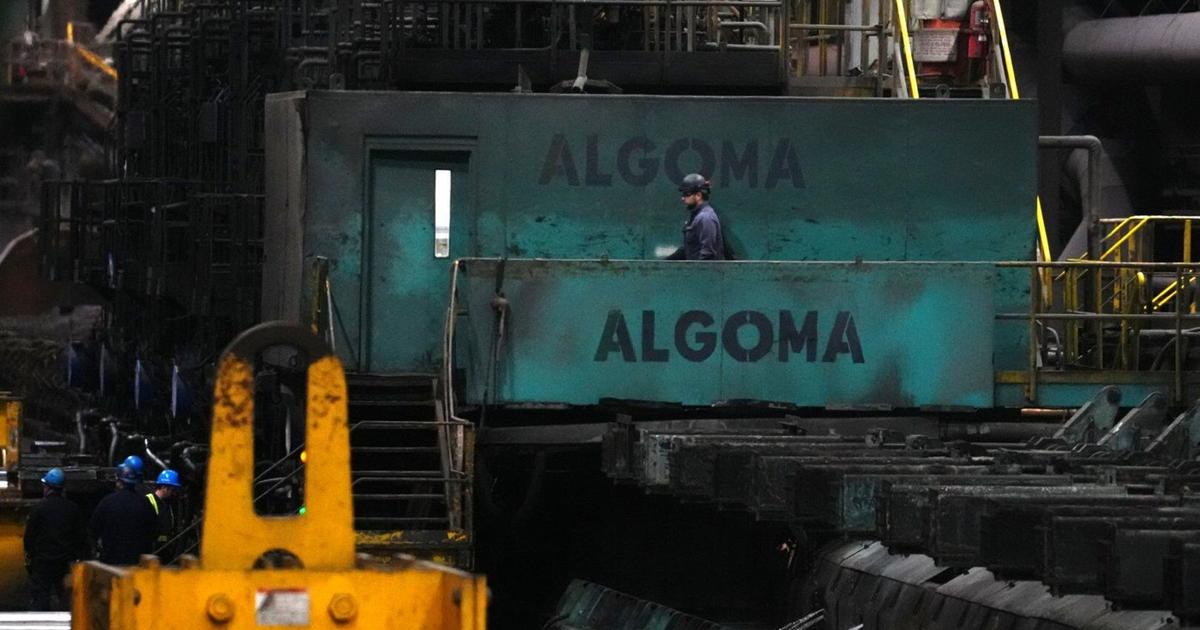After being the head of Canada’s largest local transit agency for more than two weeks, new TTC CEO Mandeep Lali says he plans to forge a bit of a different path when it comes to communications and accountability compared to his two immediate predecessors.
“Every leader has their own style … I started as an electrician, so I’ve worked the trades. I know how it feels to work days, nights, weekends,” he said.
“I like to see what’s happening, how it’s happening. I like to get suggestions from staff, hence one of the reasons why I’m travelling the system.
“A key part of leadership is listening, learning and leading collectively.”
As municipal bureaucrats go, the CEO of the TTC is arguably one of the most prolific positions. While Andy Byford was known to be in front of the cameras regularly and would often try to take ownership of various issues, Rick Leary had more of a tendency to be behind the cameras and focus more on the technical aspects of the job.
During his first CityNews one-on-one interview, Lali said he’s committed enough to regularly getting first-hand information that he doesn’t plan to have a car.
“I believe in order to understand the system and understand what our customers go through, I need to feel those pinch points, so I travel the system every day,” he said.
Lali was hired nine months after former CEO Rick Leary resigned from Canada’s biggest municipal transit organization
He previously worked as an acting senior vice-president for subways with New York City Transit, a subsidiary of the mammoth Metropolitan Transportation Authority. He also held positions with Transport for London (the local government authority responsible for transit in the London, U.K., area) and Otis Elevator.
TTCriders, a local advocacy organization for Toronto transit users, congratulated Lali when his appointment was announced and said change is needed.
“We welcome this leadership transition as a pivotal opportunity to restore trust in the TTC, deliver reliable and accessible service, and build a stronger, more transparent transit system for all riders,” a statement said.
For Lali, learning about problems won’t come solely from riding the system. As riders navigate the TTC’s network of subways, streetcars and buses, sometimes those trials and tribulations make headlines thanks to social media posts.
Whether it’s first-hand reports of recent incidents like a bed bug on a subway seat, a syringe sticking out of a streetcar seat or a delayed subway reopening after a maintenance-related closure, Lali was asked if it all leads to a brand problem for the TTC.
“When that does happen, and I do acknowledge that does happen, we work to rectify it quickly … and we will get better,” he said.
“It’s how we develop as an organization to look at safety overall. It’s not just a transit problem here in Toronto, it’s a global problem … we will overcome this and get better at it.”
There is no shortage of bigger, ongoing challenges facing Lali. CityNews asked him about various issues during an extended interview (video above) and here are excerpts of his responses:
- Restricted-speed zones (areas where subway trains and streetcars must slow down considerably in order to pass through areas in need of greater maintenance): “I have experienced that as well … that falls into the reliability part in terms of how we’re managing our assets, how we’re maintaining our assets, how can we forecast better with our technology to look at such issues and process-wise, how do we address it”
- Addressing issues of ridership, overcrowding and addressing concerns: “We need to be more effective with our schedules, we need to be more reliable with our assets and how we deliver our assets,” applying the lessons of RapidTO lanes on Bathurst and Dufferin to streetcar lines and bus routes across the city
- Changing ridership and usage patterns after COVID-19 (more use on weekends, getting to pre-COVID weekday levels): “We need to look at our schedules in how we evolve … the service we deliver on-peak and off-peak, that’s all part of the cycle in terms of what we’re doing, will do and get better at.”
- Getting the Eglinton Crosstown LRT ready for opening: “Actually, those two lines (Eglinton Crosstown and Finch West) are one of the reasons why I joined the organization. I think it’s a fantastic time to be here in terms of the opportunity that will provide,” feels confident TTC staff will be ready to operate it as soon as Metrolinx finishes its commissioning work
Lali also addressed questions about countering political interference in decision-making and proceeding with approved plans, revenue shortfalls, fare evasion, employee morale, and what he hopes to have accomplished by the end of his tenure.
Months before Lali was hired, the TTC board hired a consultant to conduct a broader public survey as well as consultations with different stakeholders. The report to the board outlined an extensive list of desired qualities and goals, referencing a potential 18-month timeframe.
According to the report, residents said they wanted the following “key accomplishments” from the future CEO: Overall service reliability and efficiency, improved safety and security, better infrastructure and maintenance, more efficient customer experience and communications, growing ridership, increased public trust, and more funding and advocacy.
The report said internal TTC staff wanted the following “key accomplishments:” Establishment of a “clear” strategic plan, improved employee engagement and morale, increased organization efficiency and restructuring, better financial stability, modernized infrastructure, better safety and security, and clarified and advanced diversity, equity and inclusion initiatives.
When asked how he will tackle that long list, Lali said it all starts with the basics.
“What’s our core function? Our core function is we employ 18,000 wonderful staff who work tirelessly to deliver a service,” he said.
“We need to ensure we’re on that trajectory in terms of delivering a reliable, effective, punctual, [clean] and cost-effective service, or better [communications].
“It’s about listening, finding out what the problems are, putting plans in place to address the problems and making sure that we’re advertising that transparently.”
The consultant presenting says these are the top asks from the public and employees. pic.twitter.com/6sE9B0Z0EX
— Nick Westoll (@NWestoll) December 3, 2024



